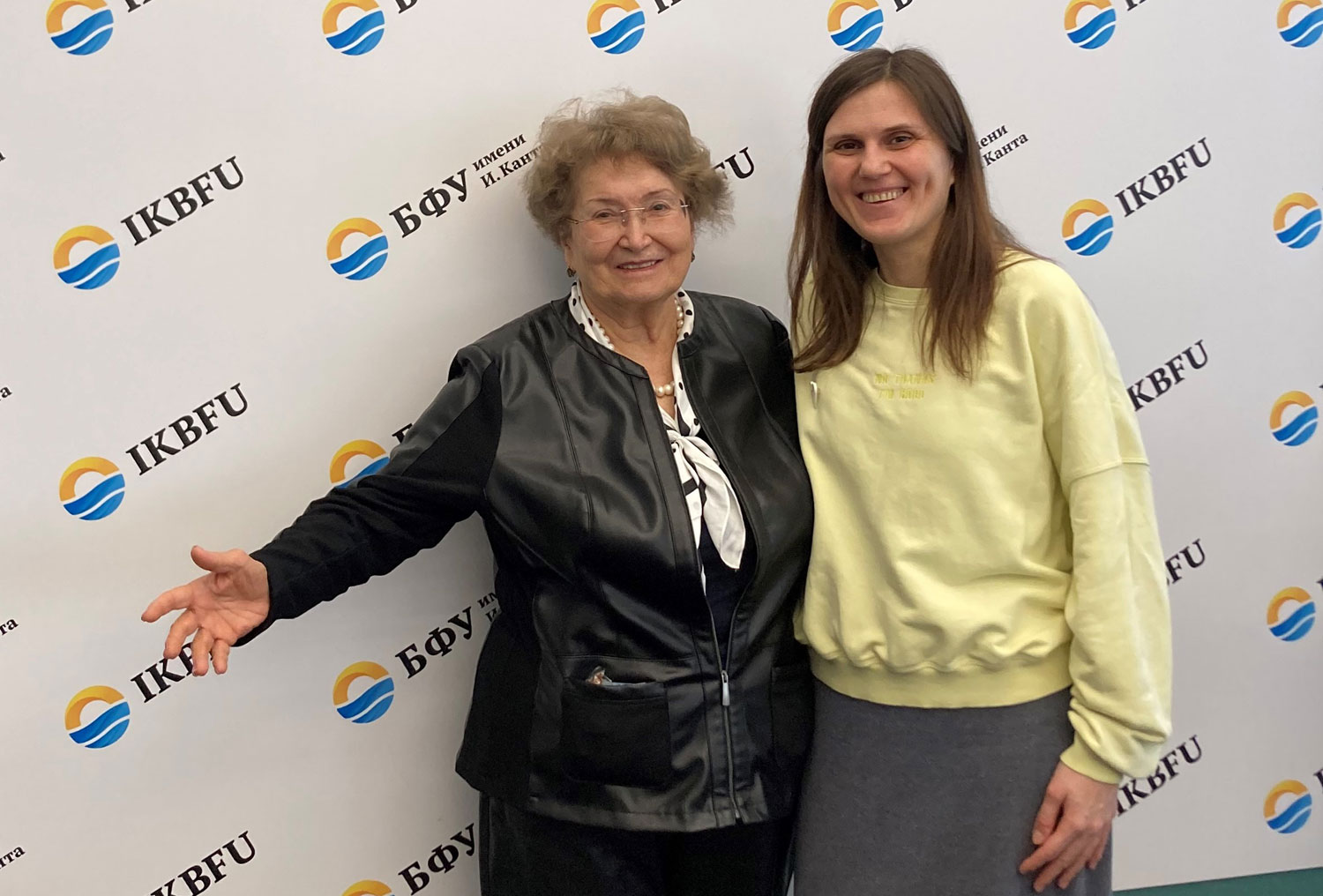Across sciences: nuclear and physical methods for ecology
News, 17 March 2022
In February, a researcher of the Laboratory of Neutron Physics JINR Yulia Aleksiayenаk successfully defended her candidate’s dissertation dedicated to the ecological studies of air in the Republic of Belarus, a JINR Member State. The investigation conducted in one of the leading applied research fields of JINR was about bryoindication, that is the method of complex ecological diagnostics with the use of moss as biomonitors.
The defence of the dissertation took place on 14 February 2022 at the meeting of the Scientific Council of Immanuel Kant Baltic Federal University in Kaliningrad, Russia. The topic of the candidate’s research was “Bryoindication of atmospheric precipitation of metals and metalloids in the Republic of Belarus” in the speciality “Geoecology” (geographical sciences). The candidate’s work was conducted at the Sector of Neutron Activation Analysis and Applied Research of the FLNP JINR Division of Nuclear Physics under the supervision of Advisor to the FLNP Directorate Marina Frontasyeva, Coordinator of the UN Programme on Air in Europe.
 In the photo: Marina V. Frontasyeva and Yulia Aleksiayenаk after successful defence of the dissertation
In the photo: Marina V. Frontasyeva and Yulia Aleksiayenаk after successful defence of the dissertation
In total, ecological samples of moss-biomonitors have been selected from an area of about 70 % of the territory of the Republic of Belarus. The acquired results of three simultaneous collections of biomonitor mosses, which are conducted in Europe once in five years, have been sent and published in the reports of the UN Commission on European Air. As an analytical method to determine the elemental composition of biomonitors, Yulia Aleksiayenаk used neutron activation analysis at the IBR-2 reactor and at the BR1 reactor in Mol during her internship at the Belgian Nuclear Research Centre (SCK CEN). The role of the consultant, geoecologist from Baltic Federal University Yu. V. Koroleva in the preparation of the dissertation should be highlighted.
The cooperation of the student from Belarus with the Joint Institute has a long history. In 2004, Yulia Aleksiayenаk, a student of the International Sakharov Environmental Institute in Minsk at that time, came to Dubna for participation in the JINR International Radiobiological School for Young Scientists at which she met future supervisor of her scientific work. “This meeting resulted in the implementation of the UN Programme in the countries of Eastern Europe, in particular, in Belarus,” Marina Frontasyeva said. Thus, since 2005, biomonitoring of atmospheric precipitation of heavy metals and radionuclides have been underway in the territory of the Republic of Belarus thanks to the efforts of Yulia Aleksiayenаk.
According to the supervisor of the scientific paper Marina Frontasyeva, the foundation of the dissertation was given after Yulia Aleksiayenаk graduated from the university with honours in 2006 and then entered the post-graduate study at the JINR University Centre, which she then finished in 2009.
It is noteworthy that the membership of the Scientific Council of the University in Kaliningrad includes among others professors of Moscow and St. Petersburg State Universities. So, the unanimous support of the dissertation from the Council is a deserved recognition of work conducted at the junction of sciences: biology, chemistry, ecology, and nuclear physics.